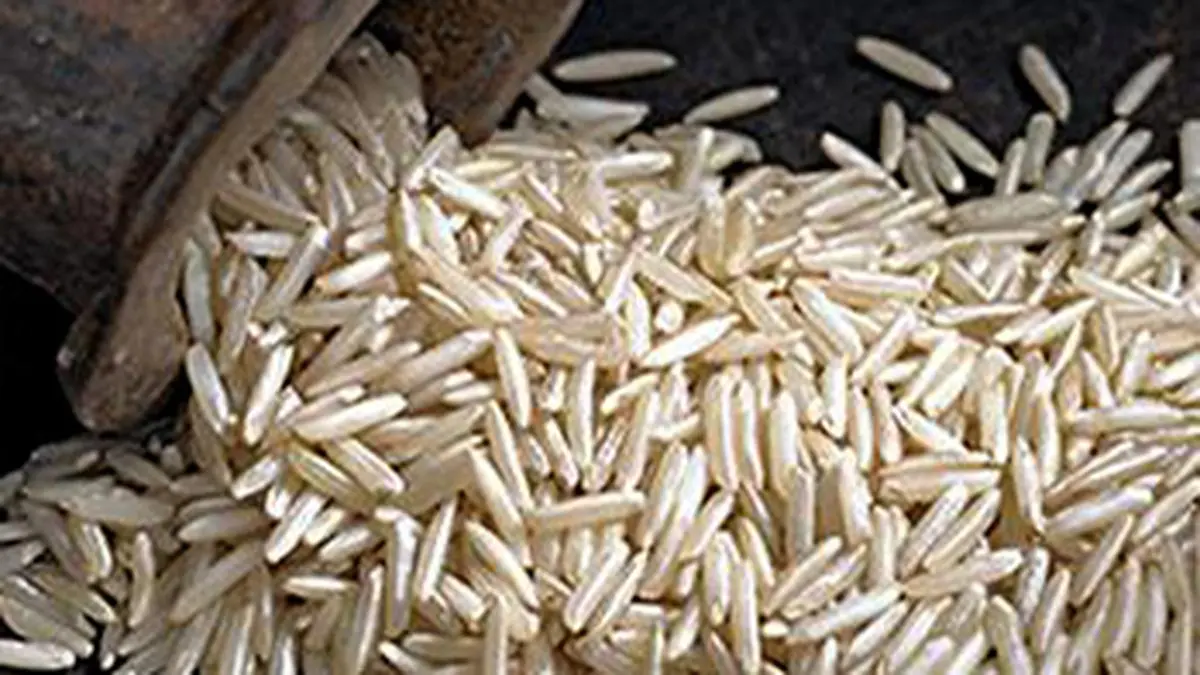
Close up of Basmati Rice.
| Photo Credit:
4kodiak
Basmati exporters associations of Haryana, Punjab have objected to the hike in fees on registration of export contracts to ₹70/tonne from ₹30/tonne. If India maintains the same level of export in 2024-25, Apeda may collect over ₹31 crore towards the fund during 2025-26, an increase of 73 per cent from the year-ago, industry sources said.
Though the fee hike looks small, exporters said it is neither a tax nor a cess. Hence, it escapes scrutiny on its utilisation. They cite the current instance of floods in Punjab where Basmati farmers faced problems of sand accumulating on the field after water receded. They said the Basmati Export Development Foundation (BEDF) fund should have been utilised there.
Pointing out that the BEDF has a fund of about ₹25 crore as on March 31, 2025, exporters cited a decision of May 2005 by the BEDF Board wherein it was agreed to suspend contribution and only to resume when the corpus dropped below ₹10 crore. They also cited that it remained under suspension between 2005 and 2012, but levied at ₹50/tonne in 2013 and again brought down to ₹30/tonne in 2014.
No approval yet?
The Haryana Rice Exporters’ Association (HREA) has pointed out that the increase in registration-cum-allocation certification (RCAC) fees was neither discussed nor approved during the BEDF Board Meeting held on June 24, 2025, and wondered how it got implemented.
On August 6, Apeda in a circular had informed the stakeholders that the Department of Commerce approved to enhance the “contribution amount” to ₹70 per tonne to the Basmati Export Development Foundation (BEDF). “Accordingly, all the contracts for registration of Basmati exports will be registered on payment of processing fee of ₹70 a tonne plus GST with immediate effect,” it said.
Exporters said that whatever amount collected is through the contract registration, it is shared between APEDA and BEDF on a 50:50 basis.
Overlapping volume
According to official data, India had exported nearly 6.07 million tonnes (mt) of basmati rice (worth $5.94 billion) during FY 2024-25 and 2.73 mt worth $2.38 billion during April-August of current fiscal.
Industry experts said that though 100 per cent of contracts registered during a period do not translate into same volume of shipping in that period due to some overlapping, still if physical exports may be taken as the base, already APEDA may have collected over ₹8 crore for the volume shipped during April-August at ₹30/tonne fee.
“If ₹70/tonne rate is calculated for shipments between September and March of current fiscal, there is a possibility of over 3 mt of exports that may fetch over ₹23 crore,” an industry source said.
Terming it as “unusual increase”, the Punjab Rice Millers Exporters Association in a letter to Apeda last month said that it is highly arbitrary which will add huge burden on the trade and demanded its immediate withdrawal.
Differences among associations
Similarly, the Haryana Rice Exporters’ Association (HREA) urged Apeda “to reconsider and withdraw the hike in the RCAC Ffees, restoring the earlier level of ₹30 per tonne in the interest of trade facilitation and stakeholder confidence.”
“Given the critical challenges currently faced by exporters and farmers alike, this abrupt fee increase has caused deep concern in the industry,” HREA said in its letter shared with many basmati exporters at a recent meeting of All-India Rice Exporters’ Association (AIREA).
The fee hike and subsequent silence and acceptance by AIREA has brought into open the relevance of the national body with many exporters wondering what is the majority view. “If both Punjab and Haryana’s Basmati associations are unanimous on an issue, it should be given due importance by the government rather than AIREA’s view, if any,” an exporter said.
businessline in May had reported that commerce minister Piyush Goyal held discussions with rice exporters and had suggested the fees for Basmati registration of contract should be hiked to ₹100/tonne. However, there were some objections from a few leading Basmati exporters at the meeting itself.
Published on October 3, 2025
